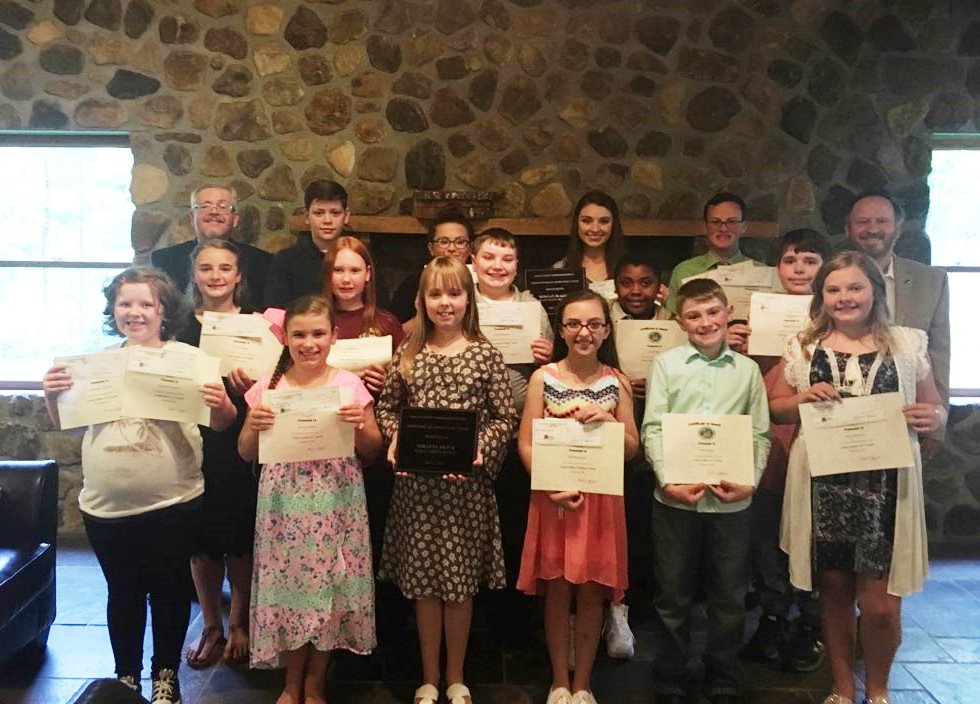Harlan County Farm Bureau presents Conservation Awards to local youth
Thousands of students have participated in the Jim Claypool Art and Conservation Writing contests since their introduction in 1974 and 1944, respectively. The contests educate students on soil, water, forestry and wildlife conservation. Students take the knowledge they have gained and transform it into creative art work and essays. Students can earn monetary prizes on the county, regional and state levels. They are also recognized each year by conservation districts around the state.
The contest is made possible through the hard work and dedication of sponsors such as the Kentucky Farm Bureau Federation, Kentucky Association of Conservation Districts and 121 conservation districts across the state.

KFB Spotlight
- Kentucky Farm Bureau Names 2025 Farmer of the Year Finalists
- July 8, 2025
-

-
The three finalists are: Mark Metcalfe of Hopkins County, Scott Porter of Mason County and Mike Wilson of Anderson County.
- Statement from KFB President Eddie Melton on Recently Passed Capital Gains Tax Relief
- July 7, 2025
-

-
Kentucky Farm Bureau President Eddie Melton commented today on the inclusion of capital gains tax relief to help keep agricultural land in production in the recently passed One Big Beautiful Bill Act.
- President's Column | I Want Our Farming Legacy to Continue for Generations
- July 3, 2025
-

-
Over the last 25 years, Kentucky agriculture has gone through an extraordinary transformation moving from a tobacco-dominant ag economy into one of the most diversified ag industries in the country.